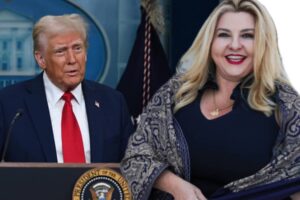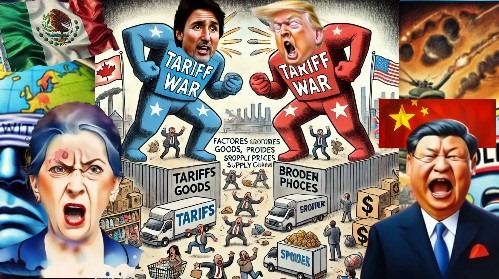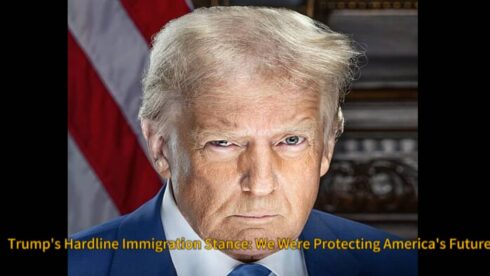Former President Donald Trump has never been one to shy away from controversy, but his latest move—a tariff war against two of the United States’ biggest trade partners—may be his most economically reckless decision yet. By slapping a 25% tariff on imports from Canada and Mexico, while imposing a lesser 10% tariff on Chinese goods, Trump has effectively invited economic retaliation from all sides.
Critics argue that launching tariff war with multiple countries simultaneously defies basic economic logic. Canada and Mexico, both integral to the North American supply chain, have retaliated swiftly and severely. The immediate fallout? Rising costs for American consumers, strained international relations, and a looming recession-level trade disruption. If Trump thought his usual strong-arm tactics would force concessions, he underestimated his opponents.
Canada’s Tariff War Retaliation: Hitting Where It Hurts
Canada wasted no time in responding to Trump’s economic provocation (tariff war). Prime Minister Justin Trudeau announced a 25% tariff on $150 billion worth of American goods, ensuring that American businesses and consumers feel the pain just as much as their northern neighbors.
Canada specifically goes after America’s red states in retaliation to this unnecessary Trump’s tariff war. Among the targeted products are Florida orange juice, Kentucky peanut butter, and Tennessee whiskey—strategically chosen to affect key Republican-led states. Provinces have also stepped up: British Columbia has halted liquor imports from Republican strongholds, Nova Scotia has doubled tolls for U.S. commercial vehicles, and Quebec is reviewing procurement contracts involving American companies. Trudeau has called on Canadians to prioritize domestic products, signaling that this trade war will be fought on multiple fronts.
Mexico’s Tariff War Counterattack: A Strategic Blow
In response to Trump’s tariff war, Mexican President Claudia Sheinbaum has taken a two-pronged approach—imposing tariffs ranging from 5% to 20% on American pork, cheese, and steel while simultaneously dismissing Trump’s incendiary rhetoric. The Mexican government has rejected accusations that it is complicit in the U.S. drug crisis and instead called for diplomatic collaboration to address transnational issues.
By targeting U.S. agricultural exports—particularly those from key swing states—Mexico is ensuring that American farmers, already struggling under existing economic pressures, feel the pinch. Supply chain disruptions are now expected to ripple across industries, further increasing costs for American consumers.
China Joins the Fray: A Calculated Response to Trump’s Tariff War
While Trump’s tariffs on China were relatively mild compared to those imposed on North American partners, Beijing has still opted for countermeasures. China has hinted at new restrictions on U.S. agricultural imports, particularly soybeans and corn, as well as potential export controls on critical minerals essential to American industries.
Economists predict that China may also introduce regulatory hurdles for American businesses operating within its borders. Given the global supply chain’s reliance on Chinese manufacturing, these actions could have wide-reaching consequences, further exacerbating inflation and economic instability in the U.S.
The Domestic Fallout: Higher Prices and Economic Uncertainty
While Trump continues to tout tariffs as a tool of economic dominance, the reality is far grimmer. Historically, tariffs lead to inflation, higher production costs, and job losses—factors that disproportionately impact middle- and lower-income Americans. As the price of goods like automobiles, electronics, and groceries increases, public frustration is mounting.
Economists warn that Trump’s tariff war could push interest rates higher as the Federal Reserve scrambles to contain inflation. Meanwhile, major retailers are already bracing for supply chain disruptions, with some warning of price hikes within weeks. In short, the American public is about to foot the bill for Trump’s miscalculation.
Trump’s Tariff War Resulted in Major International Backlash and Diplomatic Breakdown
Trump’s decision to start tariff war under the International Emergency Economic Powers Act (IEEPA) has not only sparked economic retaliation but has also damaged diplomatic ties. Both Trudeau and Sheinbaum have publicly criticized the U.S. administration for its lack of communication and heavy-handed approach.
At a recent press conference, Trudeau revealed that he had attempted to discuss the issue with Trump multiple times, only to be ignored. Instead, Trump was reportedly spending his time golfing—an image that has fueled resentment among Canadian officials. Mexico, too, has expressed frustration, warning that U.S.-Mexico relations could deteriorate further if the tariffs remain in place.
A Self-Inflicted Crisis With No Easy Exit
With this unnecessary tariff war, the United States now finds itself in a precarious position, isolated from its key trade partners and facing economic backlash from all directions. Unlike past trade disputes, where the U.S. held clear leverage, Canada and Mexico have viable alternatives—each other. China, too, has ample means to retaliate without suffering substantial losses.
Trump’s gamble on global trade has triggered a tariff war that will have lasting consequences. Whether he doubles down or seeks a face-saving compromise remains to be seen. What is clear, however, is that this ill-conceived economic battle is already proving costly for American consumers, businesses, and international standing. If Trump thought tariffs were his ticket to economic supremacy, he might be in for the biggest shock of all.














